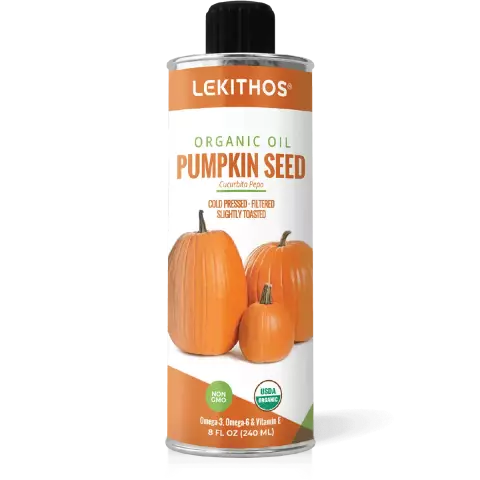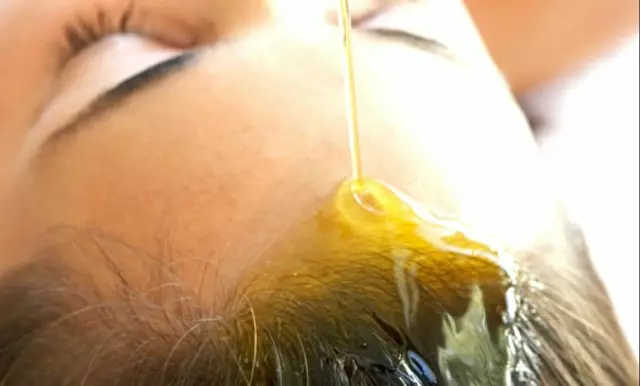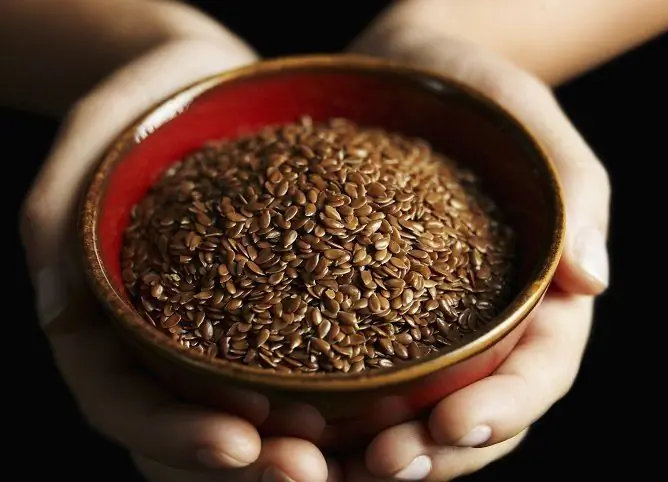- Author Rachel Wainwright wainwright@abchealthonline.com.
- Public 2023-12-15 07:39.
- Last modified 2025-11-02 20:14.
Pumpkin seed oil

The pumpkin has been cultivated by mankind for many centuries. This vegetable is endowed with special taste and unique medicinal properties. Pumpkin was first brought to Russia in the 16th century, since then it has become one of the traditional and main components of various dishes of Russian cuisine. Later, the pulp of this vegetable was recognized as one of the best products for children and preventive nutrition. The beneficial properties of pumpkin seeds, containing about 40% of valuable oil, were known back in the Middle Ages. For the first time in Austria, pumpkin seed oil was made by hand. In the same country, a decree was issued stating that the oil should be used exclusively as a medicine. At that time, it could only be sold in pharmacies. Because of its unique composition and many beneficial properties, pumpkin seed oil was called green gold (black) in the Middle Ages. The cost of two hundred grams of oil was equal to the cost of a gold ring. Now pumpkin seed oil is also quite expensive, since the production of this product is associated with the use of very laborious technologies. A special technology for the production of pumpkin oil allows you to preserve a large amount of components useful for the human body.
Pumpkin seed oil composition
Pumpkin seed oil contains a large amount of easily digestible proteins, vitamins E, A, B1, B2, B6, B3, B9, T, C, P, K, as well as micro- and macroelements (about 50) and such valuable biologically active components like chlorophyll, phospholipids, phytosterols and flavonoids. It is especially rich in zinc, magnesium, calcium, phosphorus, iron and selenium. The complex of polyunsaturated fatty acids included in the oil contains linolenic and linoleic acids necessary for the human body.
Useful properties of pumpkin seed oil
The healing properties of pumpkin seed oil are unique. The benefits of pumpkin seed oil are beneficial effects on the digestive, cardiovascular, muscular, nervous and endocrine systems. This valuable product cleanses the human body from toxins, toxins, carcinogens.
An important benefit of pumpkin seed oil is to strengthen the immune system and maintain normal hormonal balance. The anti-inflammatory, antitumor and wound-healing properties of pumpkin seed oil are explained by the content of chlorophyll and a large amount of vitamins F and A.
Its components play an important role in protein, fat, carbohydrate metabolism, as well as the synthesis of digestive enzymes and insulin, and hematopoiesis processes. Vitamin E in this product improves the activity of blood vessels and heart. Some of its components reduce the concentration of harmful cholesterol in the blood and help maintain blood pressure at a constant level, ensuring harmonious and rhythmic work of the heart muscle. In this regard, pumpkin seed oil can bring tangible benefits in the treatment and prevention of hypertension, atherosclerosis, arrhythmia, anemia and coronary artery disease.
The benefits of pumpkin seed oil for the skin are due to the high content of phytosterols - hormones of natural origin. The phospholipids of the oil ensure the proper functioning of the gallbladder and liver, restoring its structure and protecting against the formation of fatty deposits. Therefore, it is useful to regularly use oil for cholelithiasis, fatty liver disease, viral hepatitis, cholecystitis, cholecystocholangitis and biliary dyskinesia. The use of pumpkin seed oil is also indicated for stomach ulcers, enterocolitis, gastroduodenitis, colitis. It has a mild laxative effect and is successfully used in the treatment of flatulence and constipation.
Pumpkin seed oil is also successfully used in the treatment of helminthiasis. This herbal product is especially effective in the fight against tapeworms.
Pumpkin seed oil has pronounced sedative properties and is very effective for insomnia, diseases of the nervous system, neurotic disorders, and headaches.

Pumpkin seed oil, like the seeds themselves, is successfully used in folk medicine to treat diseases of the urinary organs, as well as the male and female reproductive systems. The product has a beneficial effect on the function of the prostate gland, normalizes spermatogenesis and enhances erectile function. These properties explain the widespread use of pumpkin seed oil in the treatment of adenoma, prostatitis, prostate gland, as well as diseases of the bladder, kidney and urethra.
Pumpkin seed oil is equally widely used in the treatment of various gynecological diseases - colpitis, cervical erosion, endocervicitis, ovarian and breast diseases. The product relieves painful conditions accompanying menopause and premenstrual periods and normalizes the ovarian cycle.
Therefore, pumpkin seed oil is useful in the complex treatment of female and male infertility.
The anti-allergic and bactericidal properties of the oil make it very useful for skin diseases and various traumatic skin injuries. However, it should not be used for oily skin. The harm of pumpkin seed oil for very oily skin is that it clogs the pores. This can lead to the formation of pimples, abscesses.
Method of using pumpkin seed oil
For the treatment of many diseases, one teaspoon of oil should be taken three times a day, about an hour before meals or two hours after meals. This product cannot be washed down with water. The duration of the course of treatment can be from two weeks to a month.
The harm of pumpkin seed oil
In addition to the benefits, there is also the harm of pumpkin seed oil, which can manifest itself if the prescribed dosages are not followed when using it.
Pumpkin seed oil can be harmful in case of diabetes mellitus or in case of individual intolerance to vegetable oil.
In case of gallstone disease, the product should be used with caution, as it can provoke the movement of stones in the gallbladder.
Found a mistake in the text? Select it and press Ctrl + Enter.






